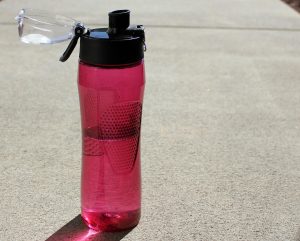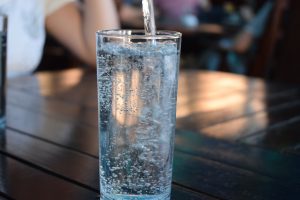 Hair relaxers are the latest beauty products to come under fire because of their link to potentially dangerous health effects. New scientific evidence has emerged that suggests that the long-term use of hair relaxers is linked to increased rates of uterine cancer. More specifically, a groundbreaking new study from the National Institutes of Health (NIH) has shown that women who use chemical hair straightening or relaxing products regularly are at a higher risk for developing uterine cancer than those who do not use these products. This study along with an earlier NIH study linking hair relaxer use to ovarian cancer are the reason women are filing hair relaxer lawsuits.
Hair relaxers are the latest beauty products to come under fire because of their link to potentially dangerous health effects. New scientific evidence has emerged that suggests that the long-term use of hair relaxers is linked to increased rates of uterine cancer. More specifically, a groundbreaking new study from the National Institutes of Health (NIH) has shown that women who use chemical hair straightening or relaxing products regularly are at a higher risk for developing uterine cancer than those who do not use these products. This study along with an earlier NIH study linking hair relaxer use to ovarian cancer are the reason women are filing hair relaxer lawsuits.
NIH Study Links Hair Relaxers to Uterine Cancer
Uterine cancer is the 4th most common type of cancer in women, and Black women are twice as likely as white women to develop uterine cancer during their lifetime. The new study from the NIH may partly explain why. The study, published in the Journal of the National Cancer Institute in October of 2022, found that women who used hair straightening products in the previous 12 months were more likely to be diagnosed with uterine cancer than women who had never used hair relaxers. And the risk increased with more frequent use. Women who used hair relaxers 4 times in the previous 12 months were more than twice as likely to develop uterine cancer.
 Illinois Personal Injury Lawyer Blog
Illinois Personal Injury Lawyer Blog


 If you spend any time on the websites of the leading defense contractors with the U.S. Department of Defense – Lockheed Martin
If you spend any time on the websites of the leading defense contractors with the U.S. Department of Defense – Lockheed Martin I’ve been an environmental lawyer for more than 20 years, working for communities whose homes, air, and water have been polluted by industry’s careless disposal of dangerous chemicals. I’ve seen government respond aggressively to protect its citizens under these circumstances, but more often not so aggressively. I’ve even seen government pretend that the contamination is not as bad as it really is to justify not doing anything about it.
I’ve been an environmental lawyer for more than 20 years, working for communities whose homes, air, and water have been polluted by industry’s careless disposal of dangerous chemicals. I’ve seen government respond aggressively to protect its citizens under these circumstances, but more often not so aggressively. I’ve even seen government pretend that the contamination is not as bad as it really is to justify not doing anything about it. We’re inching closer to that time of year when everyone starts making New Year’s resolutions to hit the gym more. If you’re one of those people, you should make an additional resolution to only buy sports bras and athletic shirts that don’t contain BPA, a dangerous hormone disruptor.
We’re inching closer to that time of year when everyone starts making New Year’s resolutions to hit the gym more. If you’re one of those people, you should make an additional resolution to only buy sports bras and athletic shirts that don’t contain BPA, a dangerous hormone disruptor. Chicago has a lead problem that may rival the contamination in Flint, Michigan, according to
Chicago has a lead problem that may rival the contamination in Flint, Michigan, according to  We have all been told about the benefits of drinking water out of a reusable bottle. It’s convenient, better for the environment than single-use bottles, and increases your daily water intake. However, if your reusable water bottle is made out of plastic, it may be more damaging to your health than it is beneficial. In a recent
We have all been told about the benefits of drinking water out of a reusable bottle. It’s convenient, better for the environment than single-use bottles, and increases your daily water intake. However, if your reusable water bottle is made out of plastic, it may be more damaging to your health than it is beneficial. In a recent  Update, July 2022: After being passed in the House and Senate, the Honoring Our PACT Act was expected to go to President Biden’s desk for his signature, but it is currently being blocked in the Senate by Mitch McConnell and the Republicans.
Update, July 2022: After being passed in the House and Senate, the Honoring Our PACT Act was expected to go to President Biden’s desk for his signature, but it is currently being blocked in the Senate by Mitch McConnell and the Republicans. As environmental lawyers, one of our passions is fighting for clean drinking water for communities affected by contamination. So, it is disappointing that the EPA, under President Biden, has endorsed a Trump administration decision and decided not to regulate perchlorate in drinking water.
As environmental lawyers, one of our passions is fighting for clean drinking water for communities affected by contamination. So, it is disappointing that the EPA, under President Biden, has endorsed a Trump administration decision and decided not to regulate perchlorate in drinking water. Procter & Gamble has issued a voluntary product recall of more than 30 aerosol spray dry shampoos and dry conditioners, warning that the products could contain benzene, a cancer-causing chemical linked to leukemia.
Procter & Gamble has issued a voluntary product recall of more than 30 aerosol spray dry shampoos and dry conditioners, warning that the products could contain benzene, a cancer-causing chemical linked to leukemia. It’s common knowledge that fast food isn’t the most nutritious dining option, but you should at least be able to expect that the hamburger or chicken nuggets you are devouring are nontoxic. That may not be the case, say researchers at George Washington University. A new
It’s common knowledge that fast food isn’t the most nutritious dining option, but you should at least be able to expect that the hamburger or chicken nuggets you are devouring are nontoxic. That may not be the case, say researchers at George Washington University. A new